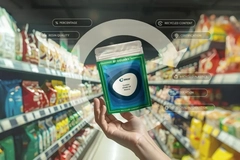EU Waste Shipment reform aims to ease plastic recyclers’ recession struggles

The European Commission (EC) has launched a public consultation as part of its new Waste Shipments Regulation, which came into force in May 2024. The consultation could expand the Green List, detailing the types of waste that can be shipped within the EU.
The revised regulation aims to address EU exports of waste (including packaging waste) to non-EU countries and illegal shipments within the EU. It also plans to improve packaging waste traceability to facilitate recycling and reuse.
“The expansion of the Green List of materials for intra-EU waste shipment is set to support European recyclers by removing certain administrative barriers and improving the trade of plastic waste between EU member states,” a spokesperson at the EU-wide Plastics Recyclers Europe (PRE) industry organization, tells Packaging Insights.

After the EC has received feedback from stakeholders and determined the final Green List, the Waste Shipments Regulation will take effect in May 2026.
The PRE says the regulation allows the EC “to Green List eligible waste streams, providing relief to delays and blockings of waste shipments intended for high-quality recycling driven by insufficient harmonization.”
“However, legislation could fall short if urgent action to address the severe recession hitting the industry is not taken in parallel,” the spokesperson adds.
The ongoing shortage of plastic recyclate has made it difficult for many packagers to afford the material, as the regulatory demand for recycled content in packaging has become more stringent.
Tackling virgin polymers and red tape
 The revised Waste Shipments Regulation aims to improve traceability and boost recyclate trade across the EU.The PRE anticipates that the EC’s Green List will pave the way toward achieving a “Single Market for plastic waste,” while diverting plastic waste from landfilling and incineration.
The revised Waste Shipments Regulation aims to improve traceability and boost recyclate trade across the EU.The PRE anticipates that the EC’s Green List will pave the way toward achieving a “Single Market for plastic waste,” while diverting plastic waste from landfilling and incineration.
The organization further highlights that the legislation will promote the use of secondary raw materials in Europe, including in the packaging industry.
“As of now, the surge in low-priced imports of recycled plastics, the consequent decrease in the demand for EU-made recyclates, mounting economic pressures, and excessive red tape are driving an increasing number of EU recyclers out of business,” says the PRE spokesperson.
“This is leading to a decrease in production and recycling capacity, compromising the survival of one of the strategic sectors in the EU’s industrial base.”
In a recent interview with Packaging Insights, PRE president Ton Emans said that the lack of a level playing field for the EU plastic recycling industry is a key issue for local recyclers, as imports of virgin plastic materials, which do not meet the same sustainability criteria, continue to grow.
“We urge policymakers to pair the Green Listing expansion with urgent measures that drive demand for EU recyclates, alleviate economic pressure on recyclers, reduce paperwork to obtain and renew permits, and boost targeted investments in the industry,” the spokesperson continues.
“Only by combining policy clarity with concrete action will the EU achieve a single market for plastic waste, while safeguarding its long-term competitiveness and environmental goals.”












